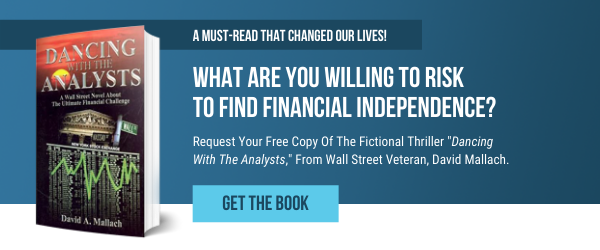AI-Generated Summary: The article emphasizes that estate planning is an opportunity, not a burden, to prepare loved ones financially in the event of incapacitation or death. It offers six tips: express love to family; share your credit report with a trusted person; maintain an updated list of financial and legal account information in a secure location; share contact information for trusted advisors like your attorney or financial planner; make a list of all your assets; and update your financial plan annually to account for life changes.
If I knew today was my last day, what would my legacy be? This isn’t a comfortable question, but it’s an important one. Answering it begins with a conversation — an open, honest moment with yourself and your loved ones. Many people don’t want to even think about creating an estate planning strategy because death has traditionally been seen as the end, so what would be the point? The point is to have a positive impact and not leave your loved ones in disarray after you’re gone.
Estate planning is not a burden, it’s an opportunity to ensure that those in your life you care about can have more ease in the future because of the steps you took today to plan for them.
What Is Estate Planning and Why Is It Important?
As Investopedia defines it, “Estate planning is the preparation of tasks that serve to manage an individual's asset base in the event of their incapacitation or death.” These are the documents and steps needed to “put your affairs in order.”
Estate planning is a process, not a one-time event: you’ll want to revisit your plan regularly to ensure that it’s still current and accounts for new events such as marriage, the birth of a child, and the acquisition of new assets.
Especially if you have children of minor age, estate planning will be critical. When you have a financial plan to account for your death, you’ll be able to protect your children. Should both parents or guardians pass without naming a guardian, the courts will decide who will take care of any children who are under the age of 18. Since you know your family best, that responsibility should be in your hands so that your children will be taken care of the way you intended.
Here are six estate planning tips to put your financial house in good order.
Financial Planning Before You Die: 6 Tips
1. Tell the People in Your Life That You Love Them
I’ll keep this short and simple. If you love someone, let them know. Today. No delays, right away. And even if you’ve let them know, let them know again. One of the most intimate things you can share with a loved one is a personal letter. Write a letter to your children, your spouse, your parents and siblings, and/or your chosen family. Personal letters or videos to loved ones are truly appreciated, especially when you are no longer here to deliver the message yourself. Of all six estate planning tips, this is priority number one.
2. Share Your Credit Report With a Trusted Source
Although the emotional toll of losing someone is devastating on its own, the administrative overhead of dealing with death can become an added (and unnecessary) stress. A while back, we had a client who passed away, and the only way to figure out exactly what needed to be done next in terms of taking care of this person’s bills, obligations, etc. was to get a credit report for the deceased party.
Even though as financial planners we have a solid understanding of most of our clients’ financial obligations, only a credit report provides an exhaustive list of all the bank accounts, credit cards, and other financial arrangements a person may have. You will need a social security number and validated email address in order to pull your credit report at a credit-monitoring provider like Credit Karma, for example. There are many other companies that provide a similar service.
Your loved ones will be grateful that collection agents won’t be hounding them while they are in mourning and afterward. It’s bad enough to receive a bill that’s past due; it’s emotionally stressful to receive nasty letters addressed to a deceased loved one. Do your family a favor and let them know what accounts are in your name.
3. Share an Updated List of Account Information With Your Financial “Proxy”
Save everything (including your social media logins, but in particular the access information to your financial accounts) to a safe location that gets automatically updated when passwords change.
And what about those important documents like passports, birth certificates, wills, or deeds to a home? Here at Beck Bode, we provide a secure online location (called the Vault) where we encourage our clients to keep copies of their most important documents and other critical information that can be accessed in case of emergencies.
You’ll still need original copies of wills and other legal documents, but it helps to have scanned copies of everything stored in the Vault (or a similar location). Another important list that belongs in a Vault is a list of all your insurance policies — especially life insurance information.
Your loved ones will appreciate not having to wrangle with companies trying to prove that they are indeed related to you, nor will you need to put them in the awkward position of going through your emails and other personal items to track down usernames and passwords. In short, you will save them a lot of time and anguish with this simple gesture while you’re still here.
4. Share the Contact Information of Your Trusted Advisors
It’s crucial that your family knows who to call in case something were to happen to you. Do they know your financial planner, your attorney, or your CPA? Make a list today of all the people to whom you turn for advice, and list their names, identify your relationships with them, and how they may be contacted. Warn against emotional investing, and ensure that your family knows the steps to enhance your current portfolio.
Your loved ones will be grateful to be connected with professionals who knew you, advised you, and understood what you desired in your life.
5. Make a List of All Your Assets
Regardless of how many assets you have, it’s important that your loved ones know about them. Assets may include:
- Any real estate you own
- Investment Portfolio including stocks and bonds
- Roth IRA, 529 plan, or 401K
- Vehicles, collectibles, and other personal items
- Health Savings Accounts (HSAs)
While including these assets in your will is important, it can help your loved ones plan if they know ahead of time what assets you have and what your plans are for passing them on.
6. Update Your Financial Plan Every Year
Of course I have to say this — I’m a financial planner! And besides, it just makes sense. Updating your financial plan will ensure that you are prepared for any circumstance.
An experienced financial planner will regularly ask you about changes to your financial situation and recommend any necessary modifications. Your financial planner will work in collaboration with your estate and tax planning professionals to update your financial plan and to ensure that your financial house is in good order in the event of your untimely death.
So go ahead and schedule that appointment with your financial planner — your loved ones will thank you for the thoughtfulness with which you led your life. Contact Beck Bode to begin your financial planning journey today.
Jim Bode is Managing Partner at Beck Bode Wealth Management.

 James Bode
James Bode